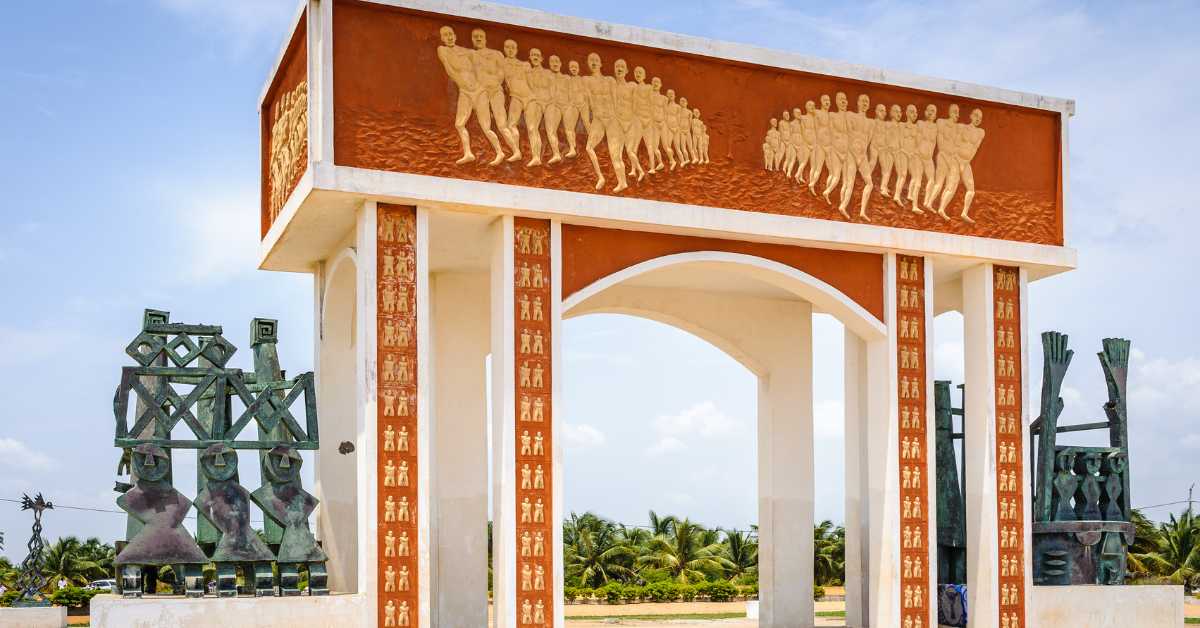The Republic of Benin, located in West Africa, is written as “贝宁” in Chinese but is generally written as “ベナン” in Japanese. While the country remains relatively unfamiliar to Japanese people, recognition is gradually increasing through its history, culture, and sports.
- The Chinese Character Notation “贝宁”
- The General Image Japanese People Have of Benin
- Relations Between Japan and Benin
- Sports Exchanges and Benin’s Appeal
- The Image of Benin Among Japanese People
- Tourism Resources and Attractions in Benin
- Food Culture of Benin
- Areas of Exchange Between Japan and Benin
- Conclusion
The Chinese Character Notation “贝宁”
In Chinese, country names are often transcribed phonetically into characters. Benin is written as “贝宁 (Bèiníng)”, which is close to the Japanese pronunciation “Benan.”
However, in Japanese, foreign country names are generally written in katakana, and this Chinese notation is not officially used. “贝宁” is limited to Chinese usage and serves only as a reference in Japanese.
Similarly, many African countries are represented by phonetically chosen characters in Chinese. This is a cultural feature of the Chinese language and differs significantly from Japanese conventions.
The General Image Japanese People Have of Benin
In Japan, Benin is still not a familiar presence. As a result, images are fragmented, but certain aspects are recognized.
- History: The port town of Ouidah, a hub of the slave trade, is introduced in world history classes.
- Culture: Known as the birthplace of Vodun (Voodoo), its unique religious rituals and music attract curiosity.
- Economy: Benin is a producer of cotton and cashew nuts, but its economic ties with Japan remain limited.
These elements form the core image of Benin among Japanese people.
Relations Between Japan and Benin
The connection between Japan and Benin is most prominent in international cooperation. The Japan Overseas Cooperation Volunteers (JOCV) contribute to education, agriculture, and medical support, with Japanese professionals working locally. These activities not only improve living conditions but also promote mutual understanding.
Benin is also a subject of academic research in Japan. Studies in African history, ethnology, and religious culture often highlight Benin, and universities and research institutions foster scholarly exchange.
Sports Exchanges and Benin’s Appeal
Sports are a powerful tool for international exchange. Football is extremely popular in Benin, and the national team has competed in the Africa Cup of Nations. The passion of young people for sports resonates with Japanese audiences.
In addition, judo and athletics are notable fields. Judo, being of Japanese origin, naturally serves as a cultural bridge. International competitions, including the Olympics, further strengthen the ties between Japan and Benin.
Sports exchanges go beyond competition, contributing to education and community development. Japanese coaches have even trained athletes in Benin, broadening opportunities for mutual understanding.
The Image of Benin Among Japanese People
| Field | Japanese Image | Actual Features |
|---|---|---|
| History | Center of the slave trade | Ouidah, a UNESCO World Heritage site |
| Culture | Land of Vodun (Voodoo) | Rich in rituals, music, and art |
| Economy | Largely unknown | Exports cotton and cashew nuts |
| Tourism | Little available information | Blend of nature and history in tourism |
| Cooperation | JOCV activities | Support in education, agriculture, health |
| Sports | Football is popular | Also active in athletics and judo |
Tourism Resources and Attractions in Benin
While not widely recognized in Japan, Benin has unique tourism resources. The combination of nature and history leaves a strong impression on visitors. Ouidah’s slave trade sites and the Royal Palaces of Abomey are UNESCO World Heritage sites, allowing visitors to experience both history and culture.
Tourism in Benin
| Destination | Feature |
|---|---|
| Ouidah | Historic city tied to the slave trade |
| Abomey Palaces | Symbol of traditional kingdoms, UNESCO-listed |
| National Parks | Safari tourism and wildlife viewing |
Food Culture of Benin
Benin’s cuisine is rooted in agriculture. The staples are maize and cassava, often eaten with stews or soups. From a Japanese perspective, the food is simple yet highly nutritious.
Typical Dishes of Benin
| Dish | Feature |
|---|---|
| Akassa | Fermented maize-based staple food |
| Fufu | Mashed cassava or yam dish |
| Grilled Chicken | Spiced chicken, popular nationwide |
Areas of Exchange Between Japan and Benin
In the future, exchanges between the two countries are expected to expand further. Education, sports, and cultural events are particularly important in strengthening ties.
Japan-Benin Exchanges
| Field | Content |
|---|---|
| Education | JOCV-led support in schools |
| Sports | International exchange through judo and football |
| Culture | Academic and artistic exchange on Vodun and music |
Conclusion
The Republic of Benin is written as “贝宁” in Chinese, but in Japanese it is written in katakana as “ベナン.” For Japanese people, it is still a relatively unfamiliar country, yet its history, culture, sports, and international cooperation are gradually drawing attention.
Sports exchanges, in particular, have great significance in deepening mutual understanding. Through football, judo, and other competitions, young people connect and share values, creating opportunities for cultural understanding.
In Japan, Benin may once have been perceived as a distant country. However, with growing collaboration in international cooperation and sports, a more diverse and positive image of Benin is expected to develop in the future.






